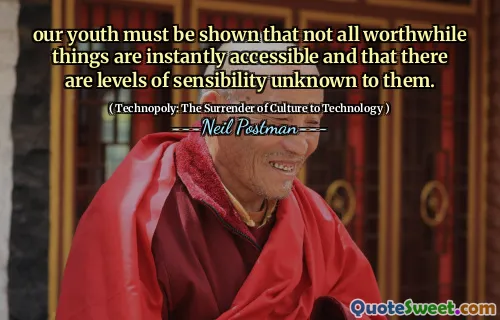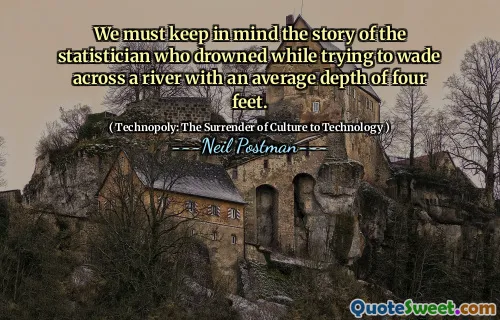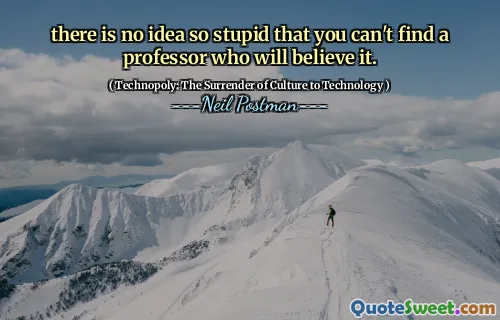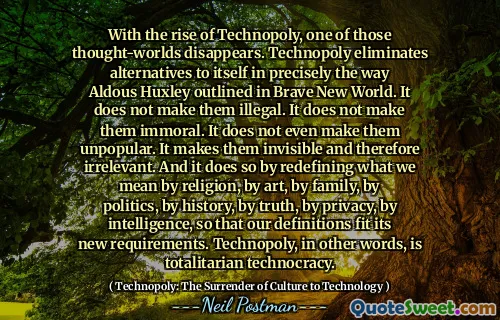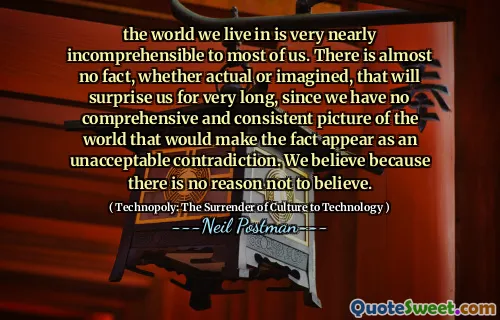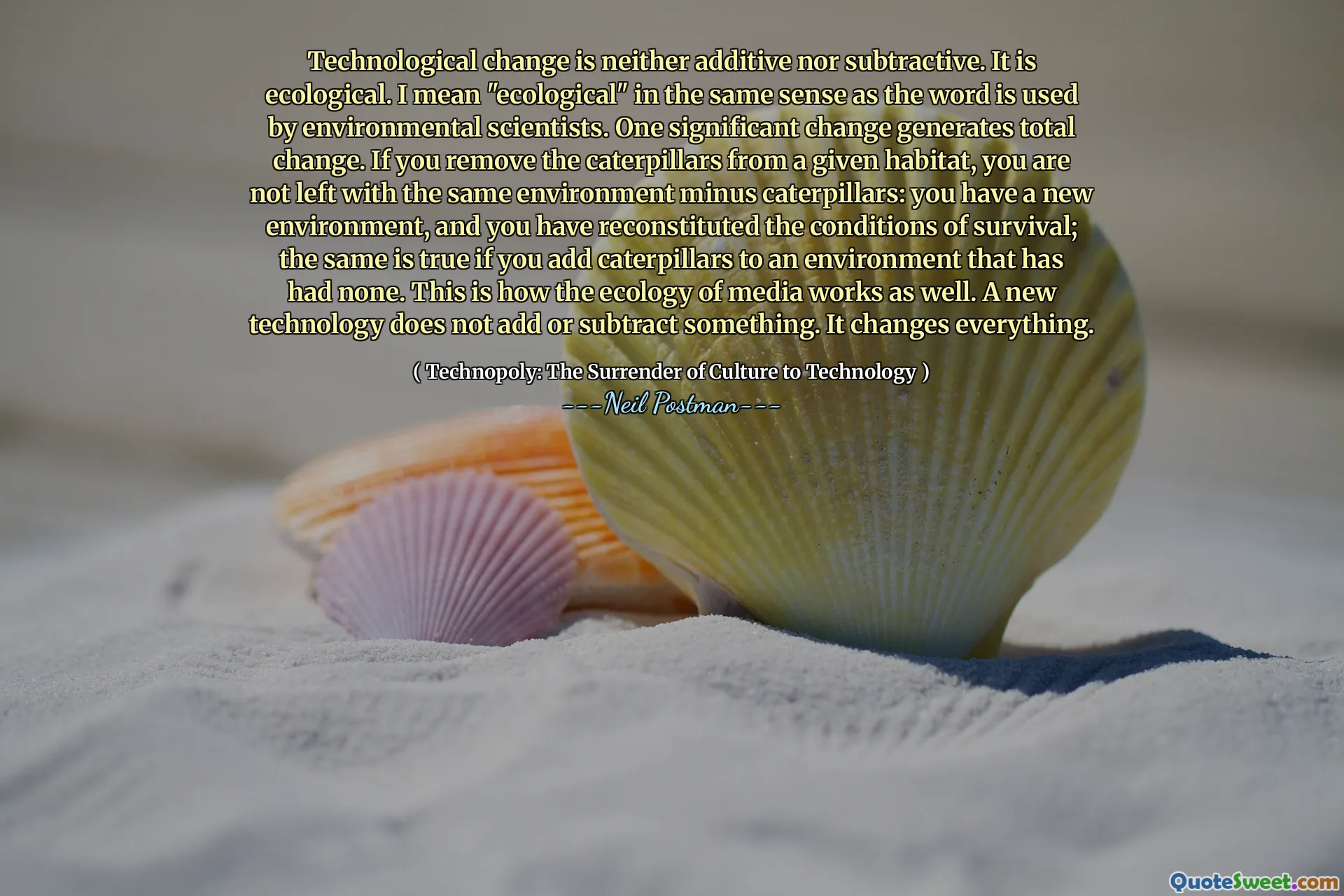
Technological change is neither additive nor subtractive. It is ecological. I mean "ecological" in the same sense as the word is used by environmental scientists. One significant change generates total change. If you remove the caterpillars from a given habitat, you are not left with the same environment minus caterpillars: you have a new environment, and you have reconstituted the conditions of survival; the same is true if you add caterpillars to an environment that has had none. This is how the ecology of media works as well. A new technology does not add or subtract something. It changes everything.
Neil Postman, in his book "Technopoly: The Surrender of Culture to Technology," argues that technological change affects ecosystems in a profound way. This form of change is not simply about adding or removing elements; rather, it transforms the entire environment. For instance, removing or adding caterpillars alters the habitat, creating a new set of survival conditions, illustrating the interdependence of elements within an ecosystem.
This concept applies to media and technology as well, where introducing a new technology results in an overall shift rather than merely a modification of existing systems. Postman emphasizes that every technological advancement redefines the context, impacting how society operates and interacts with its surroundings, thus fundamentally reshaping cultural dynamics.
